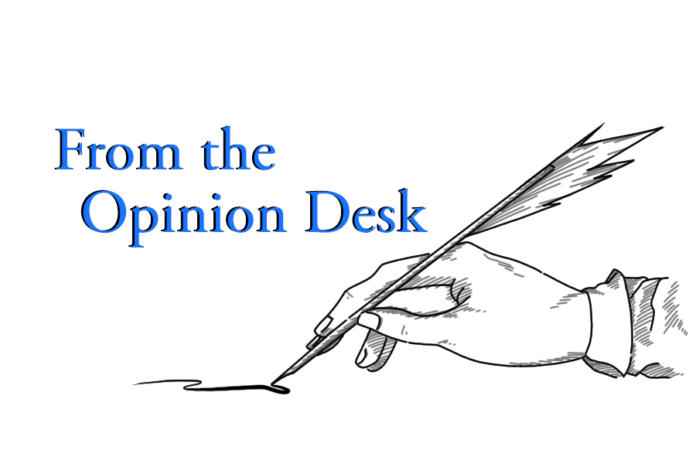We are teaching about conflict the wrong way
By ALEX MOTAWI — almotawi@ucdavis.edu
War is patriotic. War is full of emotion and is an avenue taken by nations or other entities to build a world more favorable to themselves. The U.S. wouldn’t be around today if it wasn’t for ordinary people willing to stand up and fight for their rights during the American Revolution. However, war is only a small fraction of our history. U.S. history often gives biased accounts of our world to inspire patriotism as compared to teaching students about their causes and resolutions. Patriotism is getting in the way of our history, and it needs to stop.
We need to remember the peaceful dissolutions of tensions to emulate those instead of defaulting to war. War should always be seen as a worst-case scenario only required once all peaceful options are exhausted and not something to cheer for. However, U.S. history teaches war and often ignores the deeper causes of conflict and how to make sure they don’t happen again. How are we supposed to advocate for peace during times of strife when all we learn about is war through the lens of patriotism?
A prime example of this phenomenon is the complete lack of emphasis in history books and broader society on what the U.S. did in Haiti just over 20 years ago. The mission was called “Operation Uphold Democracy,” which was governed by the Clinton administration. Why is the Haiti mission unknown to most of us (myself included)?
“Operation Uphold Democracy” isn’t lauded or remembered because it ended in peace. However, that’s why I think it should be one of the interventions we research the most. We need to see what happened there and learn to avoid war, instead of replaying the U.S.’ most patriotic achievements in our heads over and over. War is inherently destructive — it needs to be our utmost priority to find peace instead.
Like a lot of the U.S.’ international interventions, the mission was to reinstate democracy in Haiti after their first-ever popularly-elected President Jean-Bertrand Aristide was removed in a military coup led by their Lieutenant General Raoul Cedras in 1991. The U.S. placed a United Nations-sanctioned naval blockade on the regime, however, Haitian spies thought an invasion was a hollow threat, so the military junta refused to back down. War felt inevitable and the U.S. even had 25,000 troops heading overseas to invade Haiti. Thankfully, a diplomatic group led by Former President Jimmy Carter was able to reach an agreement with Cedras to transition power before the troopers landed, but it was close.
Many, many lives were saved in the making of that agreement that would’ve been lost otherwise. It would’ve been extremely easy for either side in the negotiations to stonewall and choose war, but I am extremely thankful that both groups were strong enough to reach a peaceful agreement, and they deserve credit for it.
It takes incredible skill and motivation to maneuver dangerous situations peacefully, and the people who are able to do that need to be recognized for it. I want my leaders to be peacemakers instead of warmongers, and the way to do that is to emphasize our past full of diplomatic success and illustrate the true cost of war. We are currently presenting a warped view of our history by over-emphasizing patriotism and war. If we don’t talk about more peaceful resolutions of conflict and educate the next generation on why wars get fought in the first place, then over time war will seem like the only way to solve our problems.
Written by: Alex Motawi — almotawi@ucdavis.edu
Disclaimer: The views and opinions expressed by individual columnists belong to the columnists alone and do not necessarily indicate the views and opinions held by The California Aggie.





